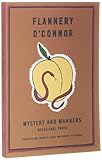
I used Leap Day to catch up on my Marcel Proust reading. And my laundry. Now, it’s March, I’m doing laundry again, and I’m finally caught up and well into Volume II. I was keeping a good pace with Volume I until mid-February, when my son had a week off from nursery school. During that same week, my husband was traveling in Australia. So it was just me and a three-and-a-half-year-old and a bad Skype connection for six days. I planned activities and playdates but foolishly did not schedule a babysitter. Also, it didn’t occur to me that it would be summer in Australia, and that when I dialed up my husband for an end-of-the-day chat, it would be morning where he was, and that he would be wearing sunglasses, a short-sleeved shirt, and a helpless grin.
 On the second-to-last day of winter break I was so exhausted that I went to bed at eight, shortly after my son fell asleep. I slept deeply, waking up the next morning with the sense that I was in my childhood bedroom — that feeling Proust describes so well in the opening pages of Volume I. I closed my eyes and held onto the illusion, wondering if I noticed and identified the feeling because I had been reading Proust or if the feeling itself had arisen from reading Proust. And then my son called for me to make his breakfast and the sensation of being in my old bedroom vanished.
On the second-to-last day of winter break I was so exhausted that I went to bed at eight, shortly after my son fell asleep. I slept deeply, waking up the next morning with the sense that I was in my childhood bedroom — that feeling Proust describes so well in the opening pages of Volume I. I closed my eyes and held onto the illusion, wondering if I noticed and identified the feeling because I had been reading Proust or if the feeling itself had arisen from reading Proust. And then my son called for me to make his breakfast and the sensation of being in my old bedroom vanished.
At that time, I was still reading Volume I, finishing up the last pages of the third section, “Swann in Love.” I was only managing a few pages a day, which was maybe an apt way to finish “Swann in Love,” with the slow pace of my reading mimicking the protracted period in which poor Swann, tormented by jealousy, can’t get enough time or attention from his lover, Odette. The worst part is, even when he’s with her, he can’t enjoy her company. And then, one morning, after a strange dream, his love dissipates and he famously wonders how he could have spent years of his life pining “for a woman who did not please me, who was not my type!”
This is probably the fourth or fifth time I’ve read “Swann in Love,” because even though I haven’t finished Proust’s novel, I’ve returned to “Swann in Love” several times and read it as if it were a stand-alone novella. When I first read it, I was most struck by Proust’s insights about romantic relationships, specifically, the role that memory plays in shaping our idea of a person, and how those memories create a narrative of “falling in love.” We use memories of shared experiences to build a story for our love and then we live in that story, inhabiting it so completely that we no longer see it as a fiction. Falling in love means abandoning an objective point of view for a subjective (some might say delusional) one. Somehow Proust manages to dramatize this change in perception in Swann’s story, making it feel epic and emblematic.
Over the years, I’ve approached “Swann in Love” from an apprentice fiction writer’s perspective, wondering how on earth did he do it? In earlier readings, I’ve thought the genius of the narration had everything to do with Proust’s prose style — his beautiful sentences and insights, his similes, his sense of humor. Now I think what matters most is the distance from which Marcel tells the story. Finding the right narrative distance is a problem I’ve been tackling in my own fiction, so maybe this is just projection on my part, but as I reread “Swann in Love,” this time, I kept thinking about the fact that Marcel introduces the story of Swann’s love affair with Odette as one that happened before he was even born. It’s a story he’s telling secondhand, “with the precision of detail which it is easier, sometimes, to obtain about the lives of people who have been dead for centuries than about the lives of our most intimate friends.”
Marcel never says who told him the story of Swann’s love affair, though there are occasional references to Marcel’s grandfather, who was friends with Swann’s father, and has a somewhat paternal and disapproving view of the younger Swann. We also meet Swann in the Combray sections of Volume I. He first appears as the visitor whose unexpected appearance disturbs Marcel’s bedtime routine, preventing Marcel from receiving a kiss from his mother. In this way, Swann is a father figure of sorts. But most of the time, Swann is like the fun, bachelor uncle whose unpredictable visits and dilettantish, social existence is in contrast to the staid routines of Marcel’s traditional, middle-class family. Swann fascinates the young Marcel, even more so after his “unfortunate marriage” to Odette, the coquette who is not even “his type.” But the younger Marcel of the Combray years doesn’t know her as Odette, he doesn’t know her “type,” and he has not yet heard the story of Swann’s tortured early years with her. All young Marcel knows is that his parents do not approve of the woman Swann has married.
To tell a story well, you need the right combination objectivity and intimacy. It’s important that Marcel’s fascination with Swann begins in childhood. Marcel will always have a memory of Swann that is visceral and associated with his family and his childhood home; he will always feel that he knows Swann in a deep way. That’s where the intimacy comes in. The objectivity comes into play as Marcel begins to wonder about Swann and the world he inhabits — a world that Marcel’s parents conceal or else know very little about. Looking back on my own childhood, the most interesting stories were the ones that my parents only told in part. I would have to piece the untold parts together like a reporter, using logic, deduction, and my own observations to make sense of what little I knew — as young Marcel does with Swann. Marcel’s questions about Swann’s life and his love affairs are essential questions of childhood: what is love, what is sexual desire, what is society, what is class, what, in short, are these mysterious forces that are shaping life but which no one alludes to directly?

 A couple of months ago, I saw the movie, Brooklyn, based on Colm Tóibín’s novel of the same name and was struck by how well it translated to film. It’s not an especially dramatic story. It follows Eilis, an ordinary Irish girl who immigrates to Brooklyn in the 1950s and has to decide who she will marry and where she will live. Her choices are not very surprising or bold. And yet, in both the book and the movie, Eilis comes across as a brave heroine. Her ordinary life seems larger than life. Even with the period details, there was something slightly out-of-time about the story; it was almost like a fairy tale. Some critics objected to the tone, wishing for something more gritty and realistic, but I don’t think it would have had the same emotional depth without it — the same mix of intimacy and objectivity. In an interview with Tóibín, I wasn’t surprised to learn that the story was from his childhood, one he heard secondhand at an emotional moment in his life:
A couple of months ago, I saw the movie, Brooklyn, based on Colm Tóibín’s novel of the same name and was struck by how well it translated to film. It’s not an especially dramatic story. It follows Eilis, an ordinary Irish girl who immigrates to Brooklyn in the 1950s and has to decide who she will marry and where she will live. Her choices are not very surprising or bold. And yet, in both the book and the movie, Eilis comes across as a brave heroine. Her ordinary life seems larger than life. Even with the period details, there was something slightly out-of-time about the story; it was almost like a fairy tale. Some critics objected to the tone, wishing for something more gritty and realistic, but I don’t think it would have had the same emotional depth without it — the same mix of intimacy and objectivity. In an interview with Tóibín, I wasn’t surprised to learn that the story was from his childhood, one he heard secondhand at an emotional moment in his life:
My father died when I was 12. We were living in a small town in the southeast of Ireland. An old woman came to our house to pay her condolences. She told a story about her daughter, who had left Ireland to live in Brooklyn. She never said “America” or “New York.” She always said “Brooklyn.” Like it was a country all by itself. The way she talked about her daughter’s experiences there — working in a big department store on Fulton Street, marrying an Italian boy — there was something magical about it. I knew even then that one day I would tell that story.
 Flannery O’Connor famously said that anyone who has survived childhood has more than enough material to write fiction. When I first heard that quote, secondhand and out of context, I assumed she was referring to the trauma of adolescence, and that it was her way of saying, “if you can’t get a story from that transformation, you probably won’t get a story from anything.” That’s part of what she’s saying, but having read the quote in context, her main point seems to be that it’s not life experience that makes you a good writer; it’s your contemplation of whatever experience life gives you. More than any writer I know, Proust shows how the half-stories we hear in childhood, the people we meet, the histories and landscapes we absorb, can be excavated in adulthood, with an adult’s sympathetic imagination.
Flannery O’Connor famously said that anyone who has survived childhood has more than enough material to write fiction. When I first heard that quote, secondhand and out of context, I assumed she was referring to the trauma of adolescence, and that it was her way of saying, “if you can’t get a story from that transformation, you probably won’t get a story from anything.” That’s part of what she’s saying, but having read the quote in context, her main point seems to be that it’s not life experience that makes you a good writer; it’s your contemplation of whatever experience life gives you. More than any writer I know, Proust shows how the half-stories we hear in childhood, the people we meet, the histories and landscapes we absorb, can be excavated in adulthood, with an adult’s sympathetic imagination.








